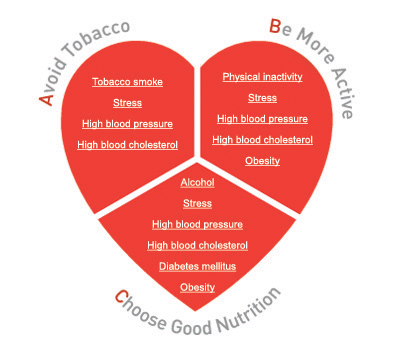What factors increase the risk of heart disease?
 |
Heart muscle cells need their
own blood supply to supply heart muscle cells with oxygen.
Arteries have elastic,
muscular walls to protect against and maintain high blood pressure. Veins have
valves and thinner walls because blood in them is at a much lower pressure.
Fatty deposits in the blood
vessels supplying the heart muscle can produce a 'heart attack' when a poor
oxygen supply damages part of the muscle.
Heart disease is usually
caused by lifestyle factors and/or genetic factors, not microorganisms.
These lifestyle factors
include poor diet, stress, cigarette smoking and excessive alcohol intake. They
increase the risk of heart disease but do not always lead to it.
Heart disease is more common
in the UK than in non-industrialised countries because many people have a high
fat diet and exercise less.
Regular moderate exercise
reduces the risk of developing heart disease. |